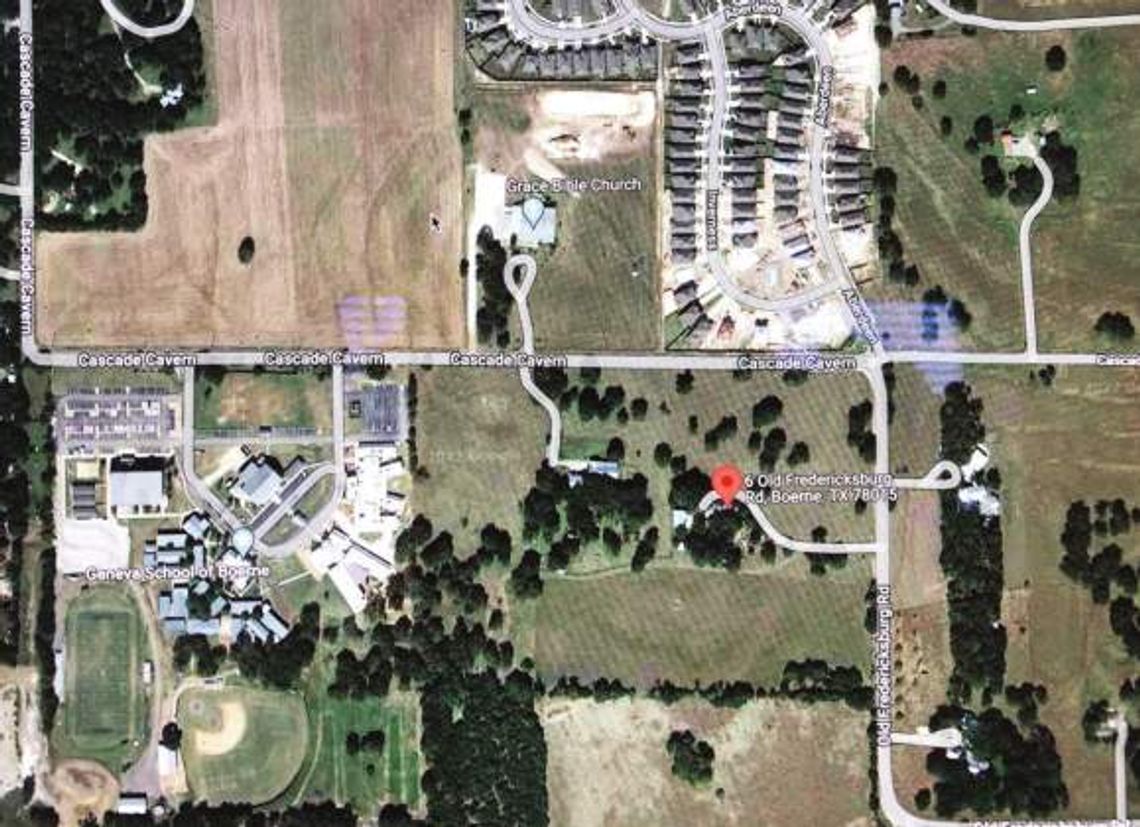The Boerne Planning and Zoning Commission on Monday took a hard stance against the unbridled growth invading the Hill Country by voting down a zoning request allowing the densely populated “horizontal apartments” aimed at Old Fredericksburg Road.
A Dallas-based development company, Provident Realty Advisors, is looking to build nearly 230 detached and attached units across 23 acres at 6 Old Fredericksburg Road north of the sprawling Lemon Creek live-work-play development and just south of the controversial Southglen subdivision east of the Geneva School of Boerne. However, the Boerne planners opposed the density that doesn’t match the city’s future land-use map, which limits the area to two to six homes per acre.
The Parchaus development would have just over nine units per acre, making it a unique type of development cropping up around Boerne and the state where several homes are built on a single lot.
“Boerne is building apartments that are already approved or under construction at a rate 8.5 times higher based on population than what San Antonio is doing,” Planner Bob Cates said. “My question is: Do we risk losing our identify in turning Boerne into a bedroom community? …
“Residents of bedroom communities often do not have deep roots in the area. … Those people did not grow up here. They don’t have family here. It makes for a different dynamic.”
Cates said the apartments already built, approved or under construction make up 35 percent of the housing in Boerne. He echoed many sentiments shared by residents who spoke out against the project calling for the retention of the “small town” way of life and Hill Country charm.
While the planners may have vetoed the zoning request, this may not be the final word from the developers as they may have another chance to come back before the commission with altered plans.
The proposed development, which is on land purchased from Cavender, is in the city’s extraterritorial jurisdiction, meaning Boerne officials have little control over the development outside the limited platting process. However, city staff said the ease of utility hookup may lead the developer to bend to some of the city’s density demands.
While the developer could outright disregard the planner’s disapproval, seeking outside water sources in the way Corley Farms has, city staff said this likely would take years to accomplish when city utilities easily could be connected, driving cooperation with the city’s demands as “time is money” for developers.
Water and other utilities have been one of the only driving forces for the city and county in controlling aspects of development, and the threat of San Antonio Water Systems entering Kendall County seriously could dampen the already diminished development control state legislation has imposed on both cities and counties.
During Monday’s meeting, the planners frequently mentioned the future land-use map for the area, which identifies two to six units per acre. While some compromise may be able to be reached, Planner Susan Friar indicated the developers were unwilling to waiver during preliminary meetings with a subcommittee. Further, she said the developers did very little in the way of research on how impactful public input is in the development process in a tight-knit community like Boerne.
“This to them was a small fish. To us, it’s not,” Boerne Planning and Community Development Director Laura Haning said, explaining these developers were used to much larger metroplexes.
If the development were to find a water and wastewater source outside of Boerne, the development would be tied to Kendall County development rules. However, this could allow for much more density unless future legislative efforts from county commissioners are successful.
Boerne Planning and Zoning Committee member Bob Cates echoed many sentiments shared by residents who spoke out against the project calling for the retention of the “small town” way of life and Hill Country charm.








Comment
Comments